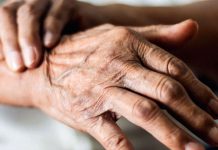The director of the Centers for Disease Control and Prevention (CDC) has recently said that racism is a serious public health threat, affecting American society.
On Thursday, Dr. Rochelle Walensky talked about the disproportionate impact of the COVID-19 pandemic on communities of color.
She said, “Yet, the disparities seen over the past year were not a result of COVID-19. Instead, the pandemic illuminated inequities that have existed for generations and revealed for all of America a known, but often unaddressed, epidemic impacting public health: racism.”
“What we know is this: racism is a serious public health threat that directly affects the well-being of millions of Americans,” the CDC director continued. As a result, it affects the health of our entire nation. Racism is not just the discrimination against one group based on the color of their skin or their race or ethnicity, but the structural barriers that impact racial and ethnic groups differently to influence where a person lives, where they work, where their children play, and where they worship and gather in community.”
“These social determinants of health have life-long negative effects on the mental and physical health of individuals in communities of color,” she added.
Dr. Walensky went on to say that the results are stark health disparities that have mounted over generations.
To address the issue of racism, Dr. Walensky has charged all of the offices and centers under the CDC to develop interventions and measurable health outcomes in the next year, according to NPR, making it clear that it is a top priority for the entire agency.
Also, the CDC launched a new web portal, called “Racism and Health,” which is designed to provide public and scientific information on the subject.
The site mentions that racism has a negative effect on both mental and physical health.
Dr. Walensky told Time Magazine, “The word racism is intentional in this [initiative] for the CDC. This is not just about the color of your skin but also about where you live, where you work, where your children play, where you pray, how you get to work, the jobs you have. All of these things feed into people’s health and their opportunities for health.”
Meanwhile, the CDC continues to study how racism affects overall health so it can develop and implement new solutions to address the issue. The CDC director told the magazine, “It has to be baked into the cake. It’s got to be part of what everybody is doing.”






















